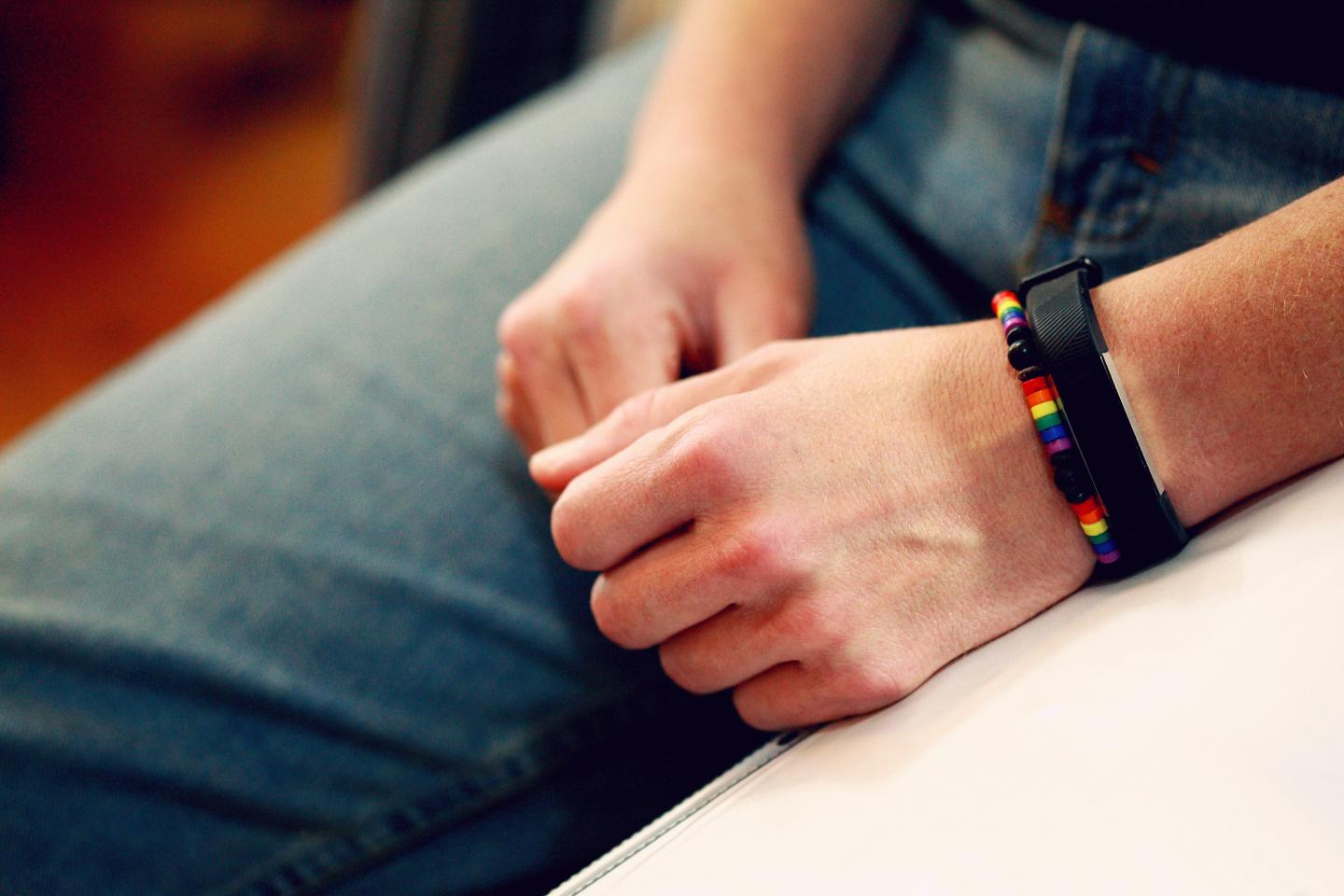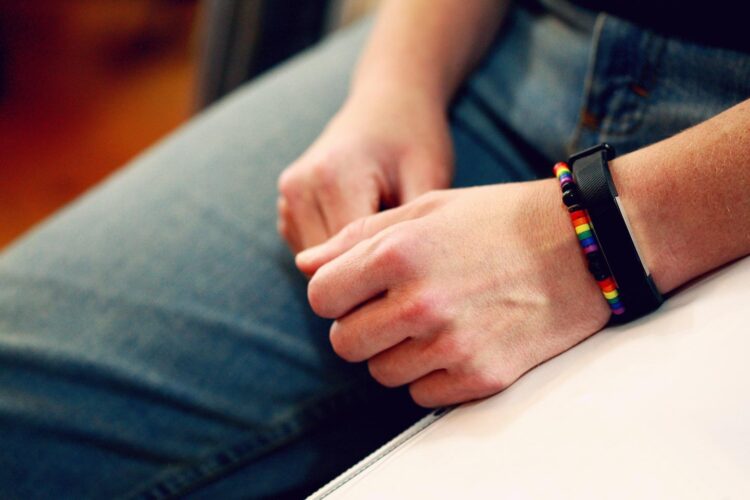
Credit: Shane
A clinic to help transgender young people and their families receive quicker support has boosted mental health, family functioning and quality of life, according to a new study.
The research, led by the Murdoch Children’s Research Institute (MCRI) and published in Pediatrics, found the clinic in Melbourne led to lower levels of depression and anxiety due to transgender young people being able to access help 10 months sooner.
The study involved 142 patients who completed questionnaires before and after attending the First Assessment Single Session Triage (FASST) clinic at The
Royal Children’s Hospital Gender Service (RCHGS).
MCRI Associate Professor Ken Pang said waitlists continued to grow at many gender services worldwide, resulting in wait times of up to two years.
“Many transgender children and adolescents experience gender dysphoria,” he said. “They are also at high risk of depression, anxiety, self-harm and suicide, which is likely to be driven not only by gender dysphoria, but also increased exposure to bullying, discrimination, harassment, violence and social isolation.
“Across the globe, increased awareness and understanding of gender diversity have contributed to a marked increase in the number of transgender children and adolescents seeking specialist care. This has placed substantial pressure on clinical resources and wait times for assessment have substantially increased.”
To manage this demand, the FASST clinic was established in 2016 to provide information and support to young people, aged 8 to 17 years, and their families. Led by a clinical nurse consultant, FASST has reduced initial wait times by 10 months and triages patients onto a secondary waitlist for additional multidisciplinary care with mental health clinicians and pediatricians.
Associate Professor Pang said the study found the clinic led to improvements in depression, anxiety, quality of life and family functioning.
“Participants found attending the clinic provided validation, not only for themselves, but also their families, classmates and wider communities,” he said. “This validation had flow on effects, improving their sense of self, boosting their confidence, and increasing parental understanding, acceptance and support.”
Associate Professor Pang said having a child identify as transgender was a momentous change and often highly stressful for families.
“We found that family functioning prior to attending the clinic was at an unhealthy level for many of our participants’ families,” he said. “But after attending the clinic, this significantly improved.”
Mac Zamani, 17, would have been waiting more than a year for support if the FASST clinic didn’t exist.
“I didn’t know what to expect but I went in with an open mind and found it really rewarding,” he said. “The nurse talked me through socially transitioning, mental health concerns, medications, and what other names and pronouns were possible options.
“It was refreshing to have such an easy conversation as you feel these things are still taboo to talk about. “The clinic made me more confident and validated my feelings that this wasn’t a phase, which made me a lot less stressed.”
Mac said while the relationship with his parents was always one of acceptance the clinic made their bond even stronger.
“My parents appreciated the support too from the nurse as it put them at ease that they were doing and saying all the right things,” he said. “They had a lot of questions and the nurse reassured them, which allowed them to block out all the negativity and removed any doubts.”
After attending the FASST clinic, Mac was referred to a psychologist, pediatrician and speech therapist at the RCHGS, where he is still a patient today.
“I’d be in a very different place without this support over the past four years,” he said. “I consider myself to be one of the lucky ones. I have friends who had very different experiences, parents who weren’t supportive and had to wait years to see a psychologist.”
Associate Professor Pang also recently received a National Health and Medical Research Council (NHMRC) grant for the Trans20 study aiming to improve the clinical care of young people who receive specialist gender support by identifying the trajectories, outcomes and predictors of their health and well-being.
It comes as a new study, published in The Lancet Child & Adolescent Health by the same research team, found most existing tools which measure gender identity, gender expression or gender dysphoria in transgender children and adolescents have substantial limitations.
Study co-senior author, MCRI’s Dr Michelle Tollit, said the majority of existing tools were created before 2000 and reflected outdated beliefs and terminology. Few assess gender identity or dysphoria and hardly any consider the substantial conceptual and cultural shifts regarding non-binary or fluid aspects of gender identity, she said.
Dr Tollit said new tools were needed which were not only specifically designed for transgender children and adolescents and capture modern concepts of gender identity, including non-binary and genderfluid identities, but also use gender affirming language and were psychometrically sound.
Researchers from The Royal Children’s Hospital, Western Sydney University, the University of Melbourne, and The Gender Identity Development Service in London contributed to one or both of the studies.
###
Publication: Sarah Dahlgren Allen, Michelle A. Tollit, Rosalind McDougall, Donna Eade, Monsurul Hoq and Ken C. Pang. ‘A Waitlist Intervention for Transgender Young People and Psychosocial Outcomes,’ Pediatrics. DOI: 10.1542/peds.2020-042762
Publication: Thea M Bloom, Thomas P Nguyen, Francesca Lami, Carmen Pace, Zeffie Poulakis, Michelle Telfer, Amelia Taylor, Kenneth Pang and Michelle A Tollit. ‘Measurement tools for gender identity, gender expression, and gender dysphoria in transgender and gender-diverse children and adolescents: a systematic review,’ The Lancet Child & Adolescent Health. DOI: 10.1016/ S2352-4642(21)00098-5
*The content of this communication is the sole responsibility of MCRI and does not reflect the views of the NHMRC.
Available for interview:
Dr Ken Pang, MCRI Team Leader, Brain and Mind
Funding:
The Trans20 study is supported by The Royal Children’s Hospital Foundation and the National Health and Medical Research Council (APP 2006529) and Michelle Tollit, Ken Pang and Carmen Pace are supported by the Hugh Williamson Foundation.
Media Contact
Bridie Byrne
[email protected]
Related Journal Article
http://dx.





